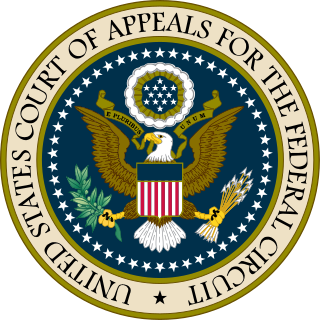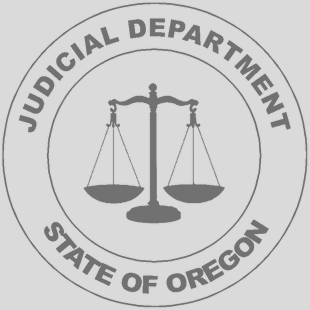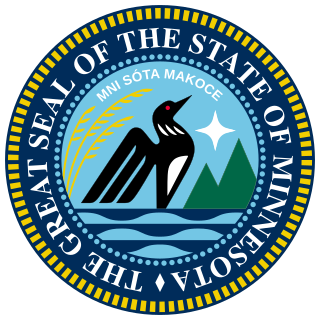Courts
The Florida State Courts System consists of:
- The Florida State Supreme Court;
- Six District Courts of Appeal, which are the state's intermediate appellate courts;
- 20 circuit courts, which handle civil cases involving more than $30,000 and criminal felony cases; and
- 67 county courts (one for each of Florida's 67 counties), which handle civil cases involving $30,000 or less and criminal misdemeanor cases.
Supreme Court

The Supreme Court of Florida is the highest court in the U.S. state of Florida. The Supreme Court consists of seven judges: the Chief Justice and six Justices who are appointed by the Governor to 6-year terms and remain in office if retained in a general election near the end of each term. [1] The Court is the final arbiter of Florida law, and its decisions are binding authority for all other Florida state courts. [1]
Established upon statehood in 1845, the court is headquartered across the street from the state capitol in Tallahassee. Throughout the court's history, it has undergone many reorganizations as Florida's population has steadily grown. The Florida Supreme Court has heard many cases of note, including the 2000 presidential election Florida recount case Bush v. Gore and the Terri Schiavo case .
District courts of appeal
The six district courts of appeal are the intermediate appellate courts. They consist of the:
- First District Court of Appeal (headquartered in Tallahassee);
- Second District Court of Appeal (headquartered in Tampa);
- Third District Court of Appeal (headquartered in Miami);
- Fourth District Court of Appeal (headquartered in West Palm Beach);
- Fifth District Court of Appeal (headquartered in Daytona Beach); and
- Sixth District Court of Appeal (headquartered in Lakeland).
Circuit courts

The twenty circuit courts are state courts, and are trial courts [2] of original jurisdiction for most controversies.
The circuit courts primarily handle felony criminal cases, civil cases where the amount in controversy is greater than $30,000, as well as appeals from county courts. Circuit courts also have jurisdiction over domestic relations, juvenile dependency, juvenile delinquency, and probate matters. [3]
Florida has twenty judicial circuits. Miami-Dade, Broward, Monroe, Palm Beach and Hillsborough are the only counties which are coterminous with their respective judicial circuits. In the rest of the state, a single judicial circuit encompasses multiple counties within its jurisdiction.
Four circuit courts have created business court programs: the Ninth Judicial Circuit (Orange and Osceola Counties), [4] the Eleventh Judicial Circuit (Miami-Dade County), [5] the Thirteenth Judicial Circuit (Hillsborough County), [6] and the Seventeenth Judicial Circuit (Broward County). [7] [8] In 2004, Ninth Circuit Chief Judge Belvin Perry made Judge Renee Roche Florida's first specialized business court judge. [9] [10] Judge Roche, along with Florida Judge John E. Jordan [11] (Ninth Judicial Circuit), have served as Business Court Representatives to the American Bar Association's Business Law Section. [12]
Judge Gill Freeman was the first judge presiding over Miami's Complex Business Litigation Section, serving in that role for five years. [13] She is co-chair of the Florida Bar Association's Business Law Section Business Courts Task Force, which was formed in 2018 to study the merits of implementing a statewide business court. [14] In early 2020, on the precipice of the COVID pandemic, the task force recommended a proposed statewide business court. [15] [16] [17]
In 2008, Seventeenth Judicial Circuit (Broward County) Chief Judge Victor Tobin issued an administrative order creating a Complex Litigation Unit with subdivisions for complex tort cases and complex business court cases. Judge Robert Rosenberg, who had suggested the idea of a specialized business court in the Seventeenth Circuit was appointed as one of the initial complex business case judges, with Judge Charles Greene to handle complex tort cases and Judge Jeffrey Streitfeld to handle complex tort and business cases. [18] [19]
In 2017, the Eleventh Judicial Circuit Court in Miami-Dade County Florida created a separate International Commercial Arbitration Court. [20] Judge Lisa M. Walsh serves as both a Complex Business Litigation Division Judge and a presiding International Commercial Arbitration Court Judge. [21]
County courts
The county courts have original jurisdiction over misdemeanor criminal cases, including violations of county and municipal ordinances, and in civil cases whose value in controversy does not exceed $30,000. [22]









